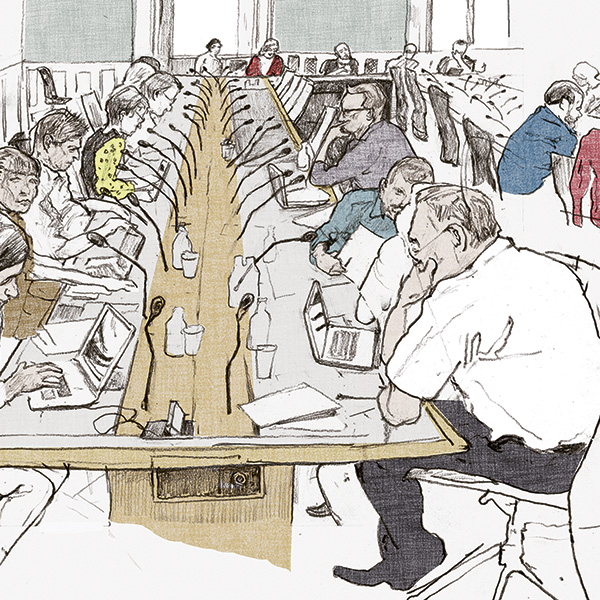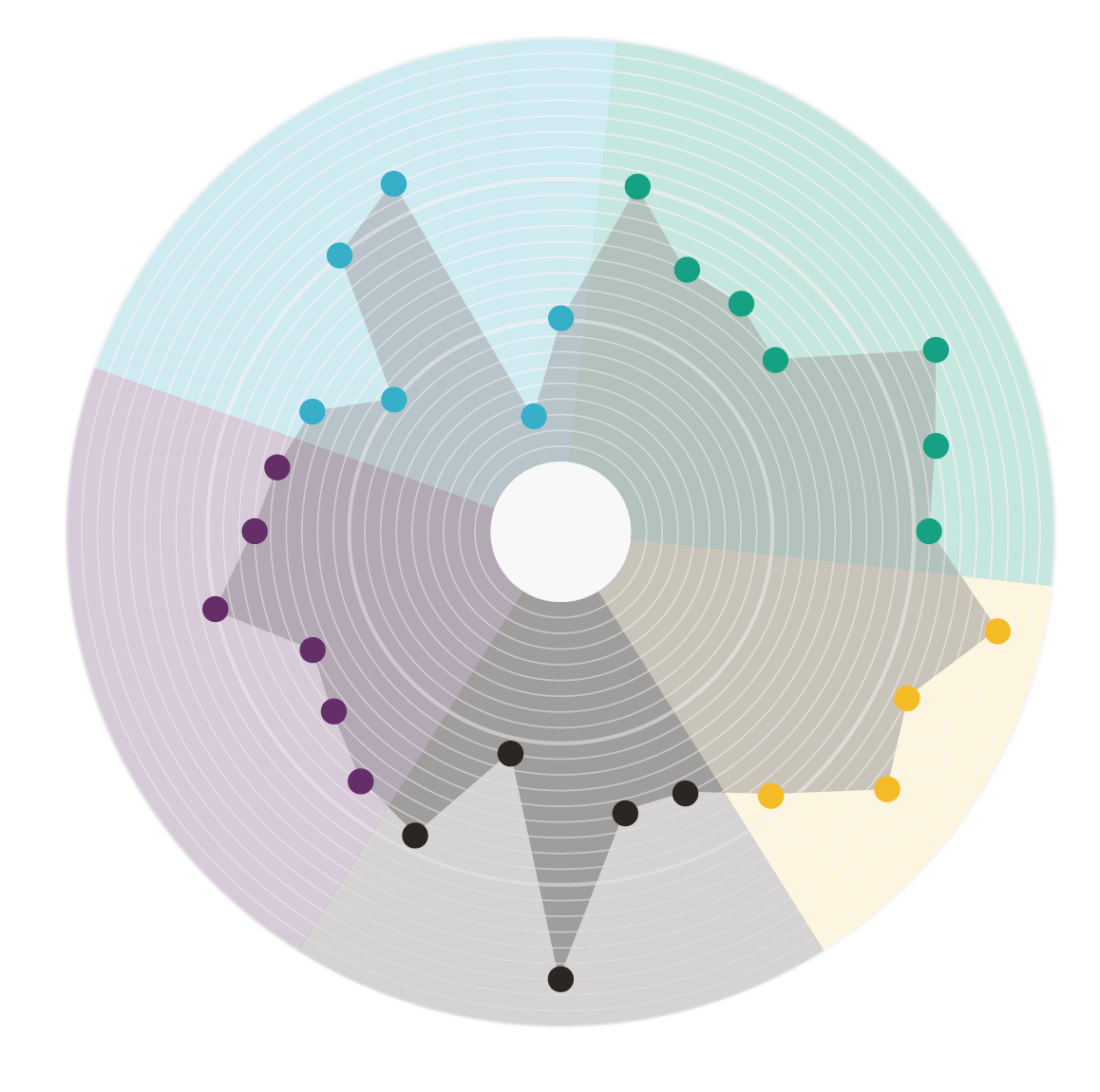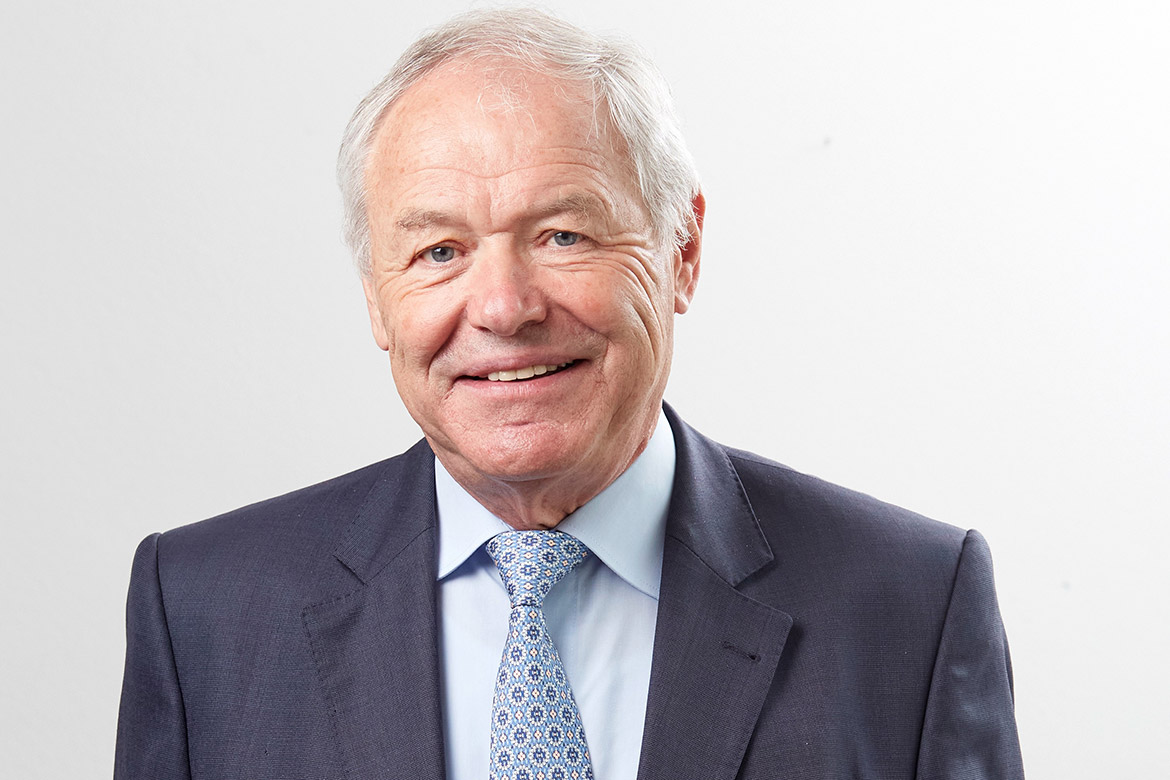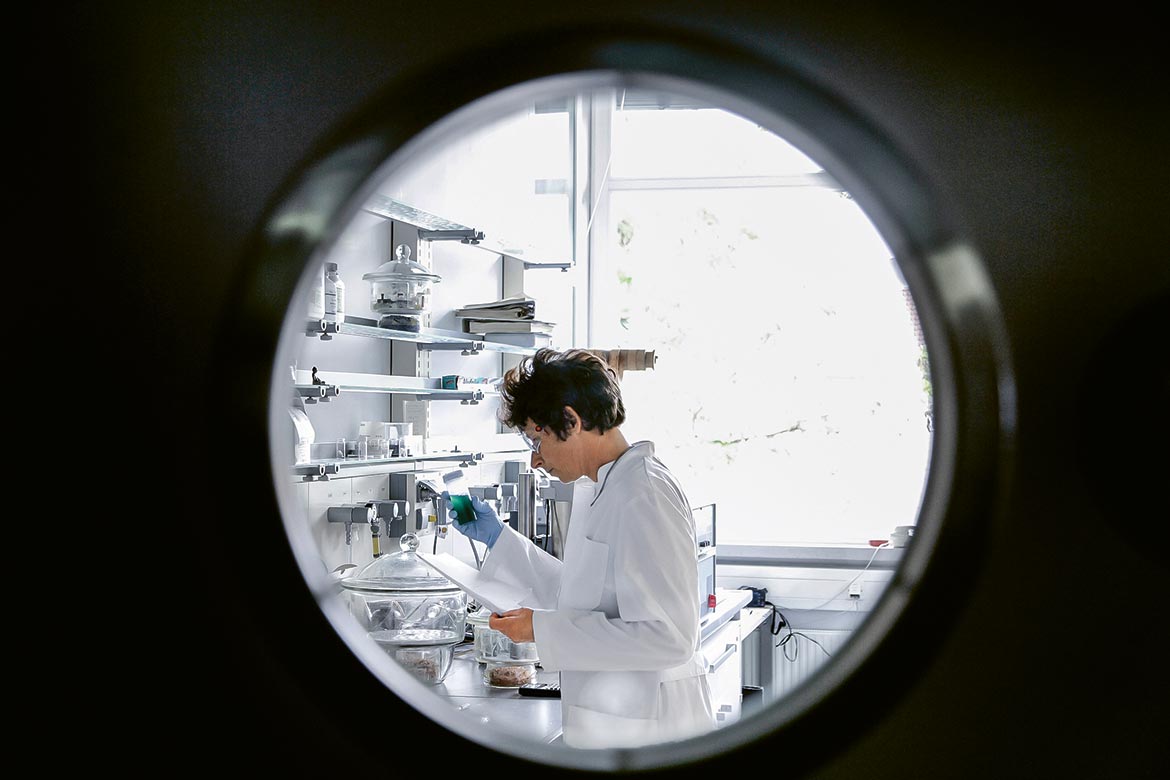Science Lovers
Scientific couples
Scientists but also life partners. Under the same roof and sometimes in the same laboratory. Between challenges and synergies, the daily life of three couples formed thanks to science.
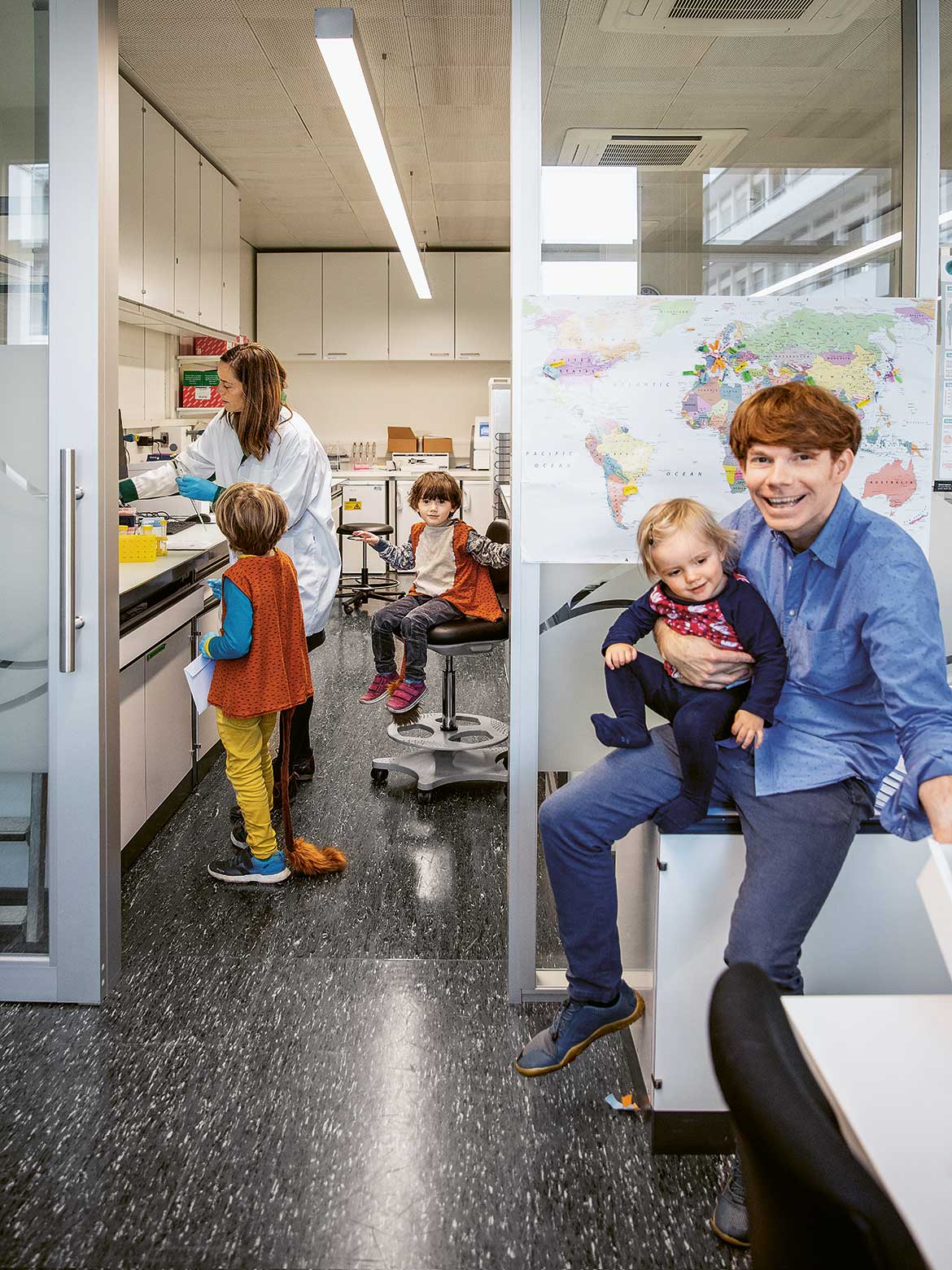
Image: Anne Gabriel Jürgens
“Our labs work very closely together: We have joint projects, staff for whom we are both responsible, and we organise joint events. That means we can support each other and also stand in for each other. One thing we can’t do is to sit together on the same doctoral committee for a student – because we need to be independent of each other for that.
“We got to know each other when we were students, during a three-week summer course at Cold Spring Harbor Lab on Long Island, New York. After that, we had a long-distance relationship for two years. We both finally ended up as postdocs at Stanford University in the USA. At that level, it was easier to get jobs as an academic couple in the same place. Towards the end of that time, I became pregnant.
“I wanted to raise our children in Europe. We were lucky that we both found jobs in Basel, independently of each other. Today we have three children. They are in the crèche on mornings, and we have a nanny for the afternoons. I couldn’t do my job without this support. Twenty-five people work in my lab, so I have to be there”.
“Our set-up also brings advantages for family life. Sometimes one of us can stay at home while the other is out, running the lab. On evenings, when the kids are in bed, we sit and work on projects together. That only works because we’re busy in the same field and also like to work together. That makes us very flexible.
“Our research also spills over into how we’re bringing up our kids. For example, we have a small lab at home and do simple experiments with them, using slime moulds and other fun things. Sometimes the kids ask questions that influence our research. We ought to include them in the acknowledgements of our next publication.
“But we are very busy. That’s why the lockdown proved advantageous from a family perspective. We were able to spend a lot of time with the children, which would otherwise have been impossible. It was a very enriching experience for me. The two older boys are seven and four years old, and they also became best friends during that time”.
“My partner and I do research in the same field. We are studying human stem cells in our labs, and generate them from skin cells. We are trying to understand how stem cells can transform themselves into so many different cell types, and also how diseases develop.
“Our labs work very closely together: We have joint projects, staff for whom we are both responsible, and we organise joint events. That means we can support each other and also stand in for each other. One thing we can’t do is to sit together on the same doctoral committee for a student – because we need to be independent of each other for that.
“We got to know each other when we were students, during a three-week summer course at Cold Spring Harbor Lab on Long Island, New York. After that, we had a long-distance relationship for two years. We both finally ended up as postdocs at Stanford University in the USA. At that level, it was easier to get jobs as an academic couple in the same place. Towards the end of that time, I became pregnant.
“I wanted to raise our children in Europe. We were lucky that we both found jobs in Basel, independently of each other. Today we have three children. They are in the crèche on mornings, and we have a nanny for the afternoons. I couldn’t do my job without this support. Twenty-five people work in my lab, so I have to be there”.
“We complement each other very well from a professional point of view, because we have different educational backgrounds. We were very lucky to find a city with two universities where we can work at our level. It’s difficult to find two jobs at the same university, and we’re fortunate that Basel has forward-looking institutions.
“Our set-up also brings advantages for family life. Sometimes one of us can stay at home while the other is out, running the lab. On evenings, when the kids are in bed, we sit and work on projects together. That only works because we’re busy in the same field and also like to work together. That makes us very flexible.
“Our research also spills over into how we’re bringing up our kids. For example, we have a small lab at home and do simple experiments with them, using slime moulds and other fun things. Sometimes the kids ask questions that influence our research. We ought to include them in the acknowledgements of our next publication.
“But we are very busy. That’s why the lockdown proved advantageous from a family perspective. We were able to spend a lot of time with the children, which would otherwise have been impossible. It was a very enriching experience for me. The two older boys are seven and four years old, and they also became best friends during that time”.

Image: Anne Gabriel Jürgens
“With grown children and established careers, we don’t face the same challenges as young scientific couples. Organising our day-to-day life is relatively easy, and we essentially see synergies in our relationship as scientists. In particular, Patricia’s editing of my group’s publications has made me realise the importance of communicating research results.
“Another example: Patricia is currently translating a book from English into Spanish about sex and gender diversity. Some of the passages are either very medical or involve advanced genetic concepts, and I am providing her with my expertise. In fact, our professional complementarity enriches our relationship as a couple. You could even say that science is a daily topic in our interactions. It’s all the easier because we speak the same language: that of science”.
“But my main activity is editing scientific articles for the University of Bern. In this context, I benefit from Hugues’ specialised knowledge to improve the texts. In our daily life as a couple, we are curious, eager to learn more, and even in our free time: real scientists!
“What is nice is that there is no competitive aspect between us. Another thing is I like the fact that he’s my boss, because even if he is picky, he’s respectful. And I’ve had worse bosses than him.
“We also understand each other’s professional constraints. For example, I often work at weekends, and he makes sure that I have enough space and peace in the apartment. Conversely, when he told me he wanted to take a sabbatical, I supported him. At first I admit that I panicked, because for me it meant being alone in Switzerland for 10 months. But I knew that this experience was important for his career”.
“Patricia and I met during our respective theses at the Davis campus of the University of California (US). We then each went our separate ways and had families of our own. It was LinkedIn that put us back in touch in 2016. Patricia then came to join me in Lausanne with her daughter Greta. I did consider moving to Spain, but the professional opportunities were not as interesting as the one I have at the University of Bern.
“With grown children and established careers, we don’t face the same challenges as young scientific couples. Organising our day-to-day life is relatively easy, and we essentially see synergies in our relationship as scientists. In particular, Patricia’s editing of my group’s publications has made me realise the importance of communicating research results.
“Another example: Patricia is currently translating a book from English into Spanish about sex and gender diversity. Some of the passages are either very medical or involve advanced genetic concepts, and I am providing her with my expertise. In fact, our professional complementarity enriches our relationship as a couple. You could even say that science is a daily topic in our interactions. It’s all the easier because we speak the same language: that of science”.
“I trained in primatology at the University of St Andrews, Scotland. My speciality was vocal communication in monkeys. Then I branched out into scientific publishing. Since moving to Switzerland in 2016, I have been more active in science communication, through podcasts and videos.
“But my main activity is editing scientific articles for the University of Bern. In this context, I benefit from Hugues’ specialised knowledge to improve the texts. In our daily life as a couple, we are curious, eager to learn more, and even in our free time: real scientists!
“What is nice is that there is no competitive aspect between us. Another thing is I like the fact that he’s my boss, because even if he is picky, he’s respectful. And I’ve had worse bosses than him.
“We also understand each other’s professional constraints. For example, I often work at weekends, and he makes sure that I have enough space and peace in the apartment. Conversely, when he told me he wanted to take a sabbatical, I supported him. At first I admit that I panicked, because for me it meant being alone in Switzerland for 10 months. But I knew that this experience was important for his career”.

Image: Anne Gabriel Jürgens
“When I was 29, I got pregnant with our first child. That’s early in academic circles, and something of an exception. But we didn’t want to let our careers determine when we could have children. When my husband was offered an assistant professorship in Switzerland, we moved to Zurich, where a large part of my family lives.
“In England, the question of part-time work never came up at all. It was impossible in sheer financial terms, and part-time jobs in research are in any case rather unusual over there. I wish a system existed that was more flexible. But I am also a realist. I know that an academic career is difficult without 100 percent commitment.
“Meanwhile, I have a tenure-track professorship. But my partner’s position is temporary. This means that our wandering years are probably not over yet. Last year, we were both elected to the Swiss Young Academy, where we’d like to raise issues like promoting women, mentoring young parents who are involved in research, and also dual-career couples in academia”.
“Last year, I turned down a lecturing job in Scotland because the distance would have been impossible given my family situation. My productivity would also have suffered. Similarly, Anna had already turned down a doctoral scholarship that Columbia University had offered her after her Master.
“It’s clear that the phenomenon of dual-career academics is going to increase in importance. Dual-career funding could also make a contribution to the ‘feminisation’ of the professorial classes. Some universities in the US and Germany are already incorporating dual-career issues in their appointment processes.
“We only learned about the concept of ‘Mittelbau’ – ‘non-professorial teaching staff’ – when we moved to Switzerland. That kind of organisational structure doesn’t exist in the English speaking world, at least not in this form. As part of my commitment to the Swiss Young Academy, I should like to give a face to the ‘Mittelbau’ in Switzerland and strengthen its degree of
representation in the Swiss academies”.
“We met when I was on an Erasmus exchange in Paris while studying at Oxford. After that, the commuting really started. I went back to England while my partner had a job first in Brussels, then in Florence. I wrote a large part of my doctoral thesis somewhere between Cambridge, Florence and Paris. My doctoral supervisor never had a problem with that.
“When I was 29, I got pregnant with our first child. That’s early in academic circles, and something of an exception. But we didn’t want to let our careers determine when we could have children. When my husband was offered an assistant professorship in Switzerland, we moved to Zurich, where a large part of my family lives.
“In England, the question of part-time work never came up at all. It was impossible in sheer financial terms, and part-time jobs in research are in any case rather unusual over there. I wish a system existed that was more flexible. But I am also a realist. I know that an academic career is difficult without 100 percent commitment.
“Meanwhile, I have a tenure-track professorship. But my partner’s position is temporary. This means that our wandering years are probably not over yet. Last year, we were both elected to the Swiss Young Academy, where we’d like to raise issues like promoting women, mentoring young parents who are involved in research, and also dual-career couples in academia”.
“Last year, I turned down a job in Scotland because the distance would have been impossible given my family situation. My productivity would also have suffered. Similarly, Anna had already turned down a doctoral scholarship that Columbia University had offered her after her Master.
“It’s clear that the phenomenon of dual-career academics is going to increase in importance. Dual-career funding could also make a contribution to the ‘feminisation’ of the professorial classes. Some universities in the US and Germany are already incorporating dual-career issues in their appointment processes.
“We only learned about the concept of ‘Mittelbau’ – ‘non-professorial teaching staff’ – when we moved to Switzerland. That kind of organisational structure doesn’t exist in the English speaking world, at least not in this form. As part of my commitment to the Swiss Young Academy, I should like to give a face to the ‘Mittelbau’ in Switzerland and strengthen its degree of
representation in the Swiss academies”.

